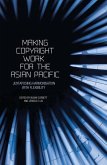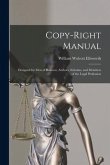Copyright is meant to do something--several things--to accomplish socially desirable ends. One of those ends is to create a space for a free exchange of ideas that allows us to build upon a universe of expression that came before. How can I tell if something is in the public domain? This is the central question addressed daily by the Copyright Review Management System (CRMS) project. It is a special question and one essential to the social bargain that society has struck with authors and rights holders. It is also a deceptively simple question. There should be a straightforward answer, especially for books. It should be easy to know when something is--or is not--subject to copyright. And yet, in an age of absolute fluidity of media and medium, even plain old books can be highly complex embodiments of copyright. We need to make it easier to ascertain whether a work is in the public domain. If the rights of copyright holders are to be respected and valued as part of the social bargain, the public domain as a matter of copyright law should be ascertainable and enjoyed . Given this complexity, consider the determination of the copyright status of a given creative work as a design problem. How do we move the copyright status of works in the collections of our libraries, museums, and archives from confusion and uncertainty to clarity and opportunity? Working over a span of nearly eight years, the University of Michigan Library received three grants from the Institute of Museum and Library Services (IMLS) to generously fund CRMS, a cooperative effort by partner research libraries to identify books in the public domain in HathiTrust. The Toolkit is a resource that aims to allow others to understand and replicate the work done by CRMS.
Hinweis: Dieser Artikel kann nur an eine deutsche Lieferadresse ausgeliefert werden.
Hinweis: Dieser Artikel kann nur an eine deutsche Lieferadresse ausgeliefert werden.

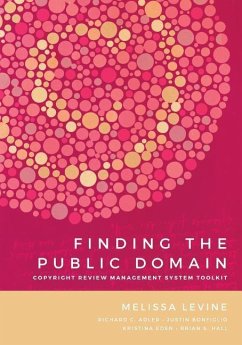
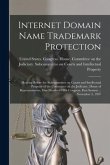
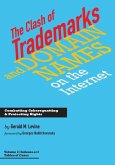
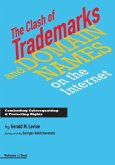
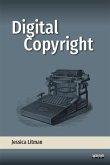
![Conference on the Copyright Question [microform] Conference on the Copyright Question [microform]](https://bilder.buecher.de/produkte/65/65569/65569925m.jpg)
